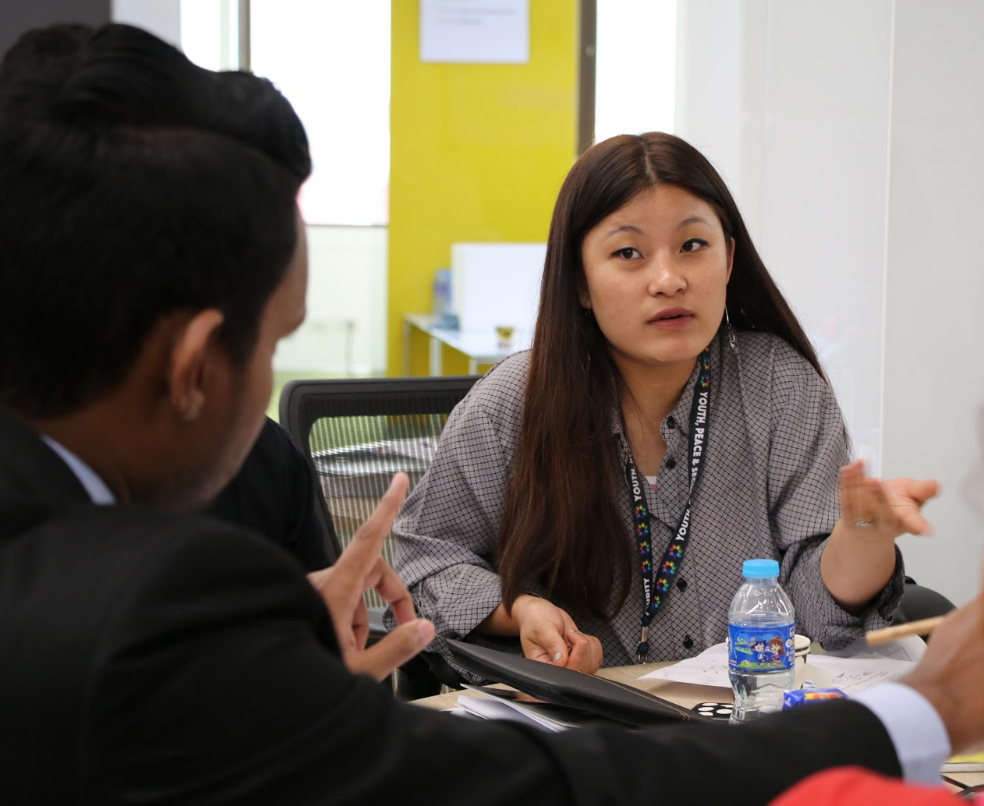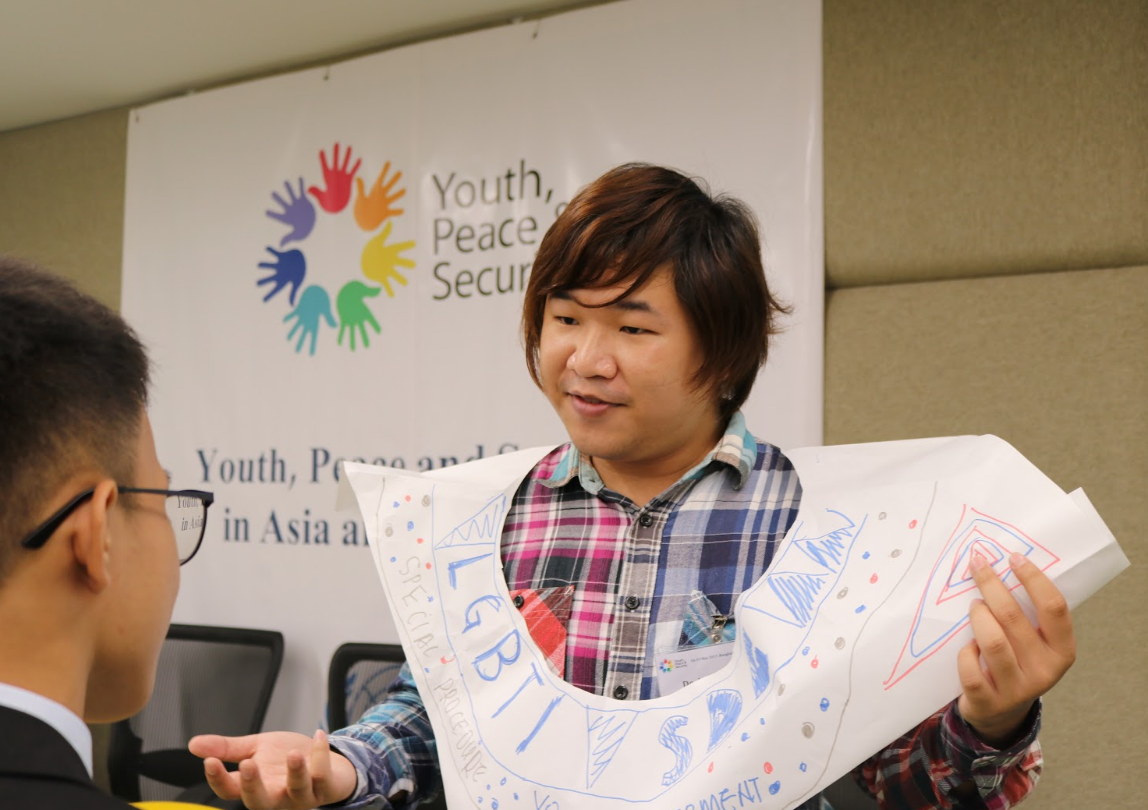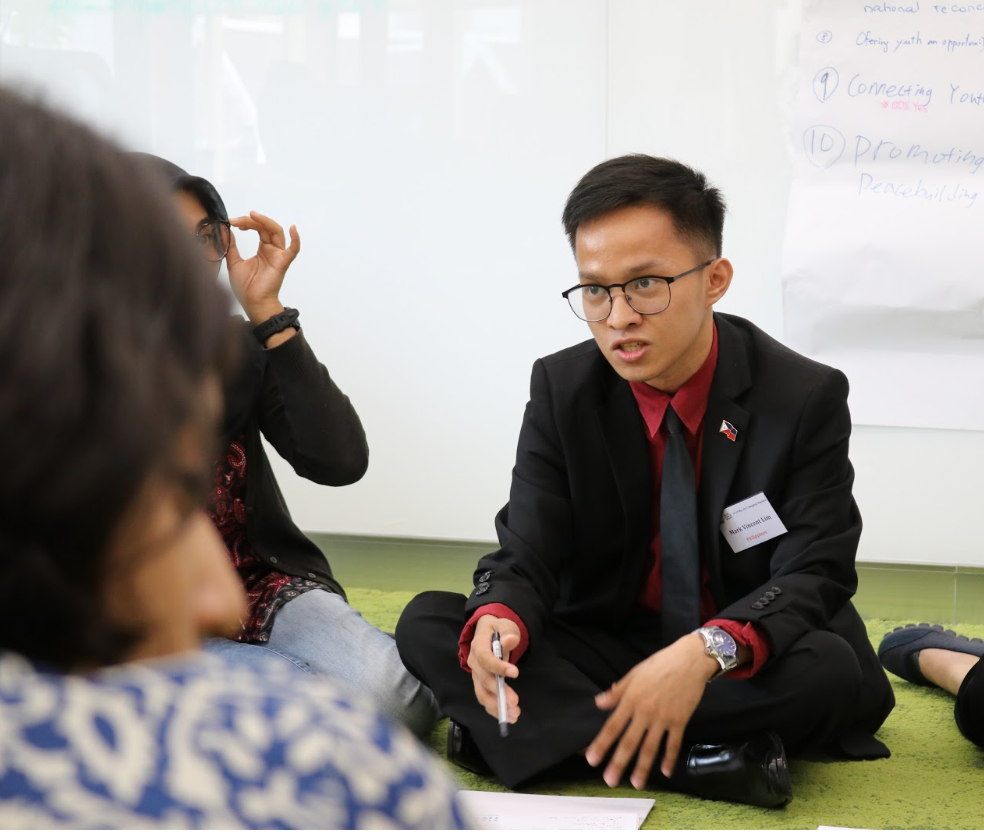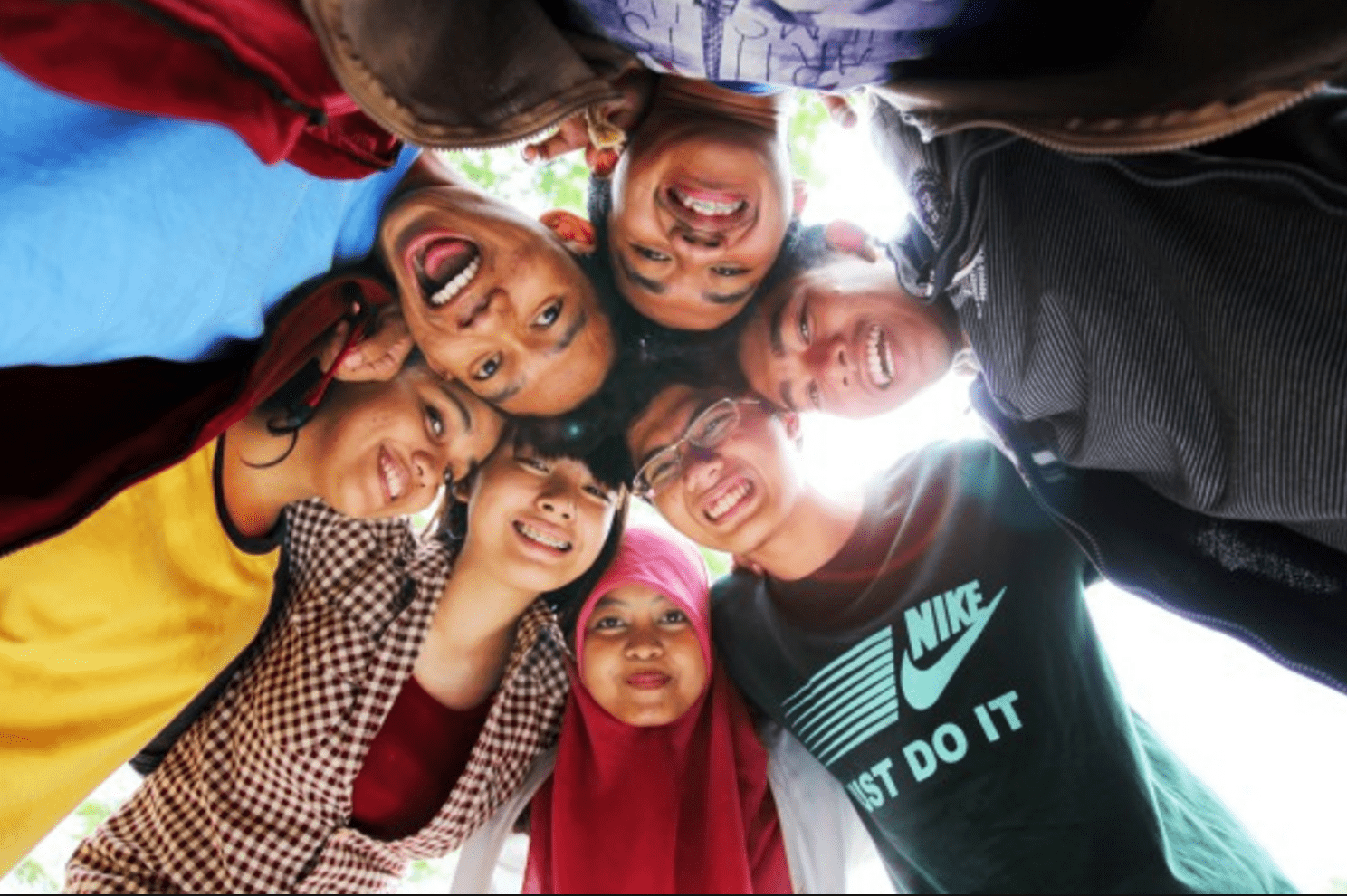On the International Day of Peace, youth across Asia-Pacific are speaking up!
Each year the International Day of Peace is observed around the world on 21 September. The theme for 2017 is “Together for Peace: Respect, Safety and Dignity for All.” It honours the spirit of TOGETHER, a global initiative that promotes respect, safety and dignity for everyone forced to flee their homes in search of a better life. The initiative focuses on engaging and mobilizing people to show support for refugees and migrants, and messages will be shared with communities hosting refugees and migrants as well as people concerned that refugees and migrants may bring physical and economic insecurity to their lives.
Asia and the Pacific continues to face serious challenges to sustainable development, peace and security through conflict, extremism, human rights abuses and violation, disasters, and in many contexts, shrinking civic spaces. All this is contributing to rising numbers of refugees, internally displaced people and migrants, including many young people.
Yet not all people are forced to move. Many, especially rural to urban migrants and many young people, move in search of a better life. Migration can bring exciting new opportunities and long term gains, but can also lead to increased risks of abuse, injustice, stigmatization and marginalization through less family and social support structures and other challenges.

“Pressing issues like migration can be collectively talked about and discussed, and we [youth] can in the future be agents that provide immigrants a place to call home.” -Sonam Paeday, Bhutan Participant of the Asia-Pacific Youth Peace & Security Consultation and Member of YPEER Bhutan
Sustainable Development Goal 16 calls for action on building peaceful and inclusive societies with transparent and accountable institutions and ensuring access to justice for all. Young people have a crucial role in this endeavor, and in building and maintaining peace and security more broadly. Their participation in decision-making as well as access to quality education, health care services, political and social inclusion enables them to reach their full potential and achieve their goals.
Asia-Pacific youth speak up!
Some of Asia-Pacific’s most driven youth peacebuilding advocates, were brought together as part of a series of regional consultations for the United Nations Secretary General’s Progress Study on UN Security Council Resolution (SCR) 2250 earlier this year. The 40 young advocates defined peace and security as a form of social harmony, which enables people from different cultures, religious, ethnic and other backgrounds and genders to live together peacefully.

“I taught at a local refugee school briefly in Malaysia. Their lives are non-existent in the eyes of the State. They have no access to health care, education and employment. They’re also extremely vulnerable to abuse from police and of bribery. Political refugees who face discrimination because of their gender identity and sexual orientation is alarming. There is a lack of conversation regarding the refugees who fled their countries because of their sexual orientation and gender identity. With our youthful energy and capabilities, including to adapt to new technological trends, youth can act as mediators, community organisers, and peace brokers.” Declan Loke, Malaysian Participant of the Asia-Pacific Youth Peace & Security Consultation and Vice President of the PELANGI - Campaign for Equality and Human Rights Initiative
Recognizing, respecting and protecting ethnic and religious differences and ensuring gender equity are necessary conditions to build peace and security in the region. In a world, where ethnic and religious differences are the root causes of violent conflict, identity-related differences need to be framed as an opportunity to build peace, because peace is “about being able to speak about identity, religion, and ethnicity safely (Ratu Savenaca Veikoso, Fiji Participant of the Asia-Pacific Youth Peace & Security Consultation and Youth Leader at ASPIRE Network).
Uzma Gul, a Pakistani participant of the Asia-Pacific Youth Peace & Security Consultation and Asia Region Coordinator - Training, Innovations and Development of the Commonwealth Youth Peace Ambassadors Network.
Uniting for peace also means strengthening and supporting partnerships between all stakeholders- youth organisations, grassroots organisations, governmental bodies, UN and other international organizations, education institutions, civil society organizations, religious institutions and leaders, and social movements. It is essential to create genuine partnerships that are grounded in respect and empathy to nurture a positive eco-system for everyone, especially those further left behind, to engage in peacebuilding activities. Families are also potential partners for the peace and security agenda in a way that it builds a link between the youth and older people and nurtures peace to be embedded in our culture.

“Indigenous tribes of the Philippines, especially in Mindanao, are continuously being threatened and displaced from their own land. The youth is a potent force in achieving change which is why it is important to participate regardless if you are not a direct member of the indigenous tribe. We work with academes, religious institutions, community-based organisations, civil society organisations, and have the support of some government officials, agencies and private citizens- in supporting to fulfill the rights of our indigenous tribes to access education and other basic social services, and claim their ancestral lands. We should all work together to attain sustainable peace and human rights as this is a collective effort that is shared by humanity.” Mark Vincent Lim, Philippines Participant of the Asia-Pacific Youth Peace & Security Consultation and National Spokesperson of National Union of Students of the Philippines.
We all have a piece of us at stake in the peace agenda - we all have something to gain, something to lose, and something to do. Asia-Pacific’s incredible diversity of culture, ethnicity, race, gender, beliefs and ideologies, opens the door to find new and exciting ways live peacefully with one another, embrace diversity and stand up for everyone’s rights.
Saajid Malhardeen, Sri Lanka Participant of the Asia-Pacific Youth Peace & Security Consultation and the Founder President of Kalutara Youth Foundation.
Today, as we commit to do more to show our respect and support for refugees and migrants on the International Day of Peace, we can also commit to work together in achieving a truly sustainable peace and to bring about true social change through a shared voice and shared action - leaving no one behind.
Erika Yague – Consultant, Adolescent and Youth Programmes, UNFPA Asia-Pacific



